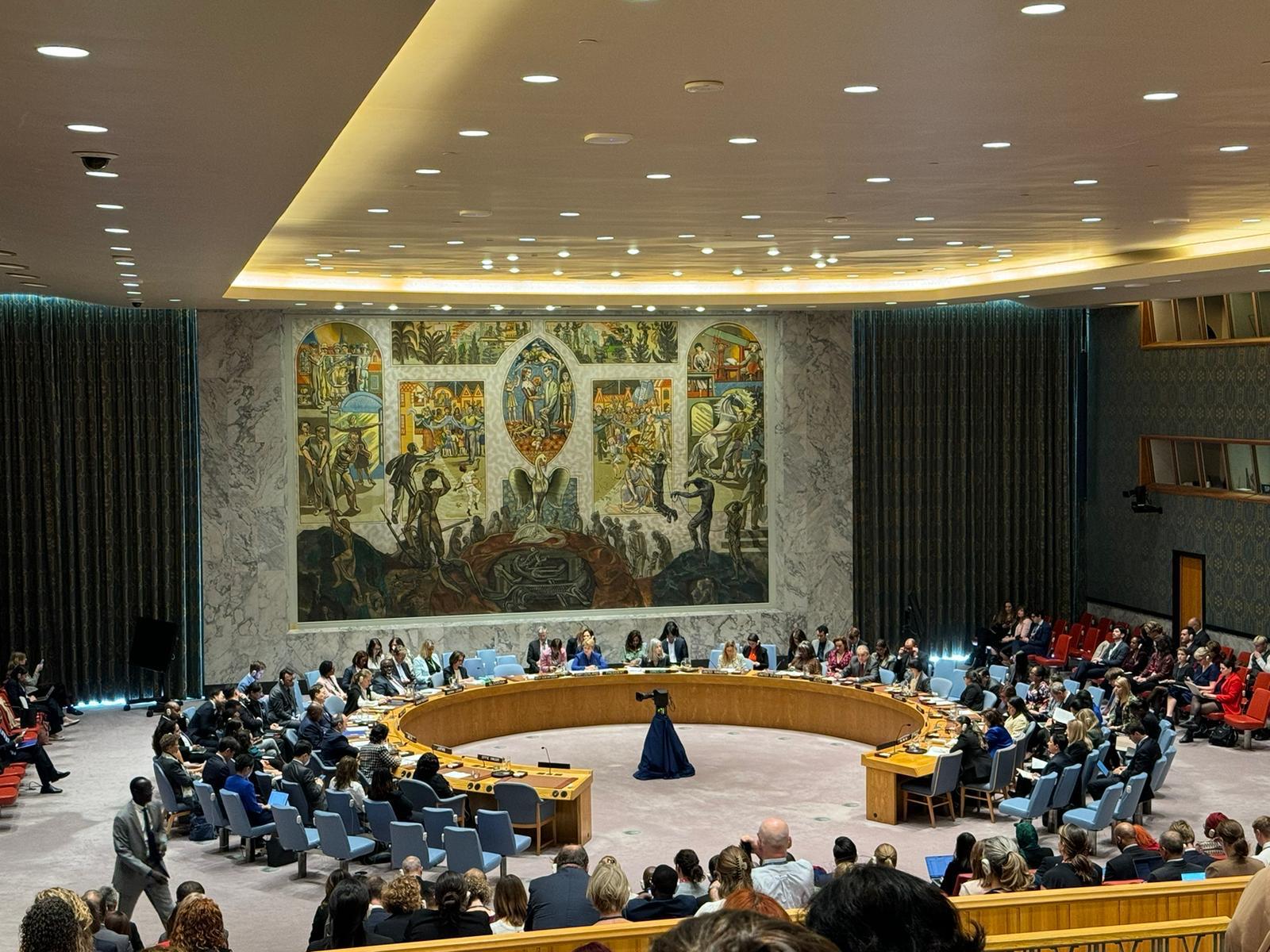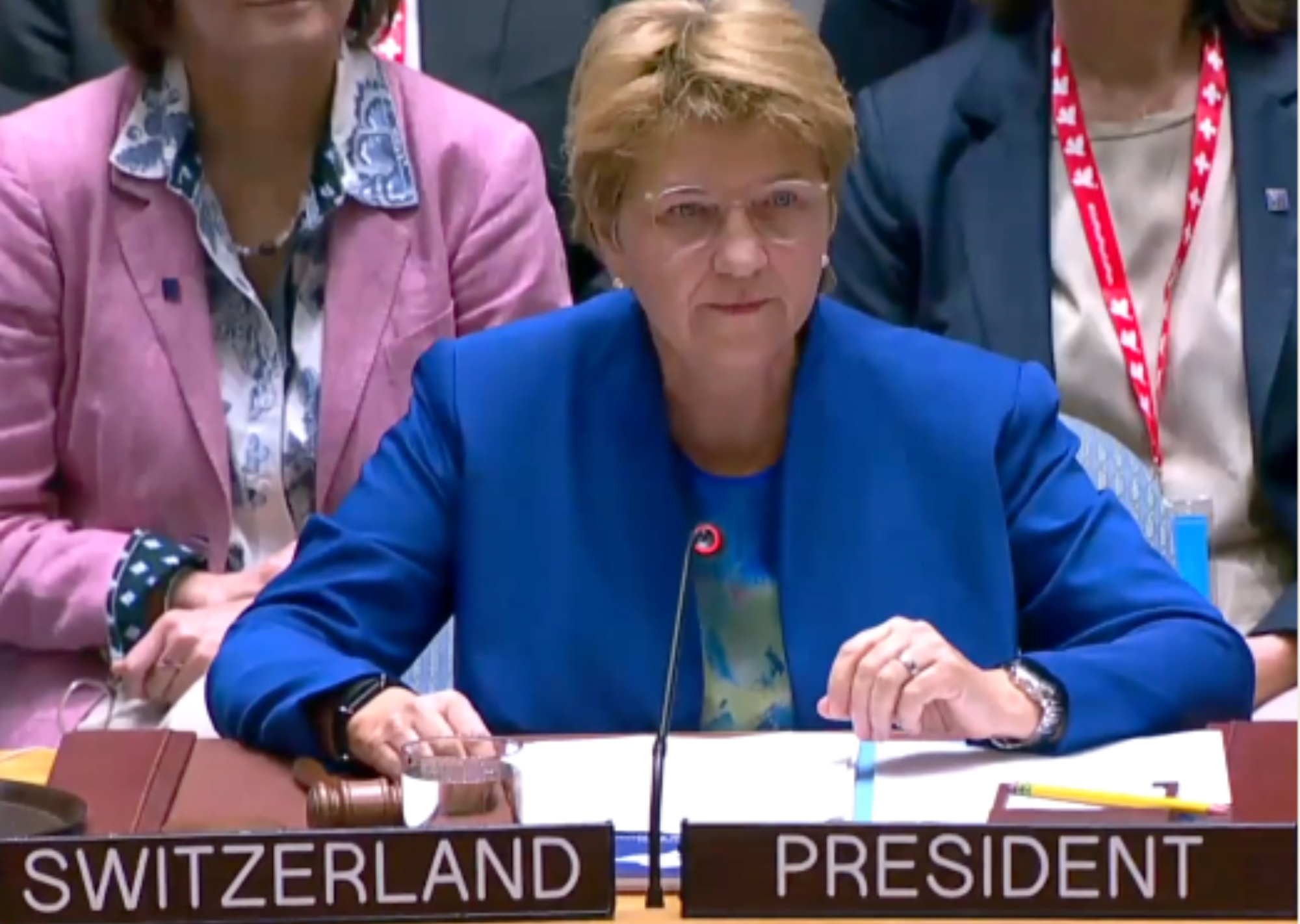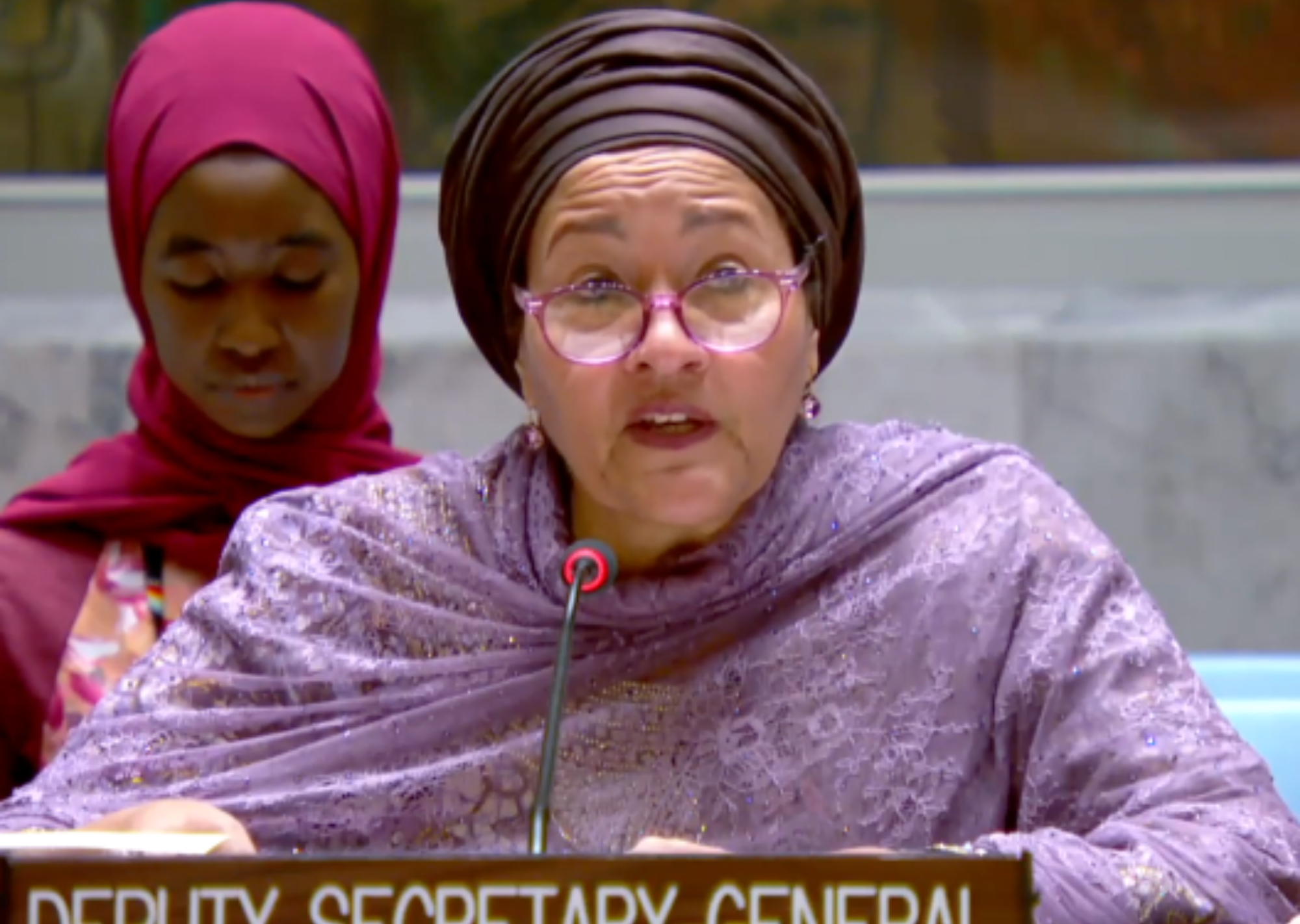Women Building Peace in a Changing Environment:
UN Security Council Open Debate on Women, Peace and Security
Event | October 2024
On October 24, 2024, the United Nations Security Council held an open debate at the United Nations headquarters titled, ‘Women Building Peace in a Changing Environment’ on the agenda item of the Women, Peace and Security (WPS) Agenda. This annual debate comes at a harrowing time marked by increased violence against women and their ongoing exclusion from peace processes.
In 2023, the number of women killed in armed conflict doubled and the number of UN-verified cases of conflict-related sexual violence increased by 50 percent.
Despite being uniquely affected, in 2023, women made up less than 10 percent of peace negotiators and 13.5 percent of mediators. In preparation for this debate, the NGO Working Group on WPS released a letter on behalf of 628 civil society signatories from 110 countries working on issues related to gender equality and women’s rights, peace and security, human rights, humanitarian assistance, and protection of civilians. This letter called for decisive action from the Security Council and Member States to protect and advance women’s rights in crises and conflict settings.

Participants at the UN Security Council Open Debate on Women, Peace and Security. 2024.
The debate, chaired by Viola Amherd, President of the Swiss Confederation, centered around the report of the Secretary-General on WPS (S/2024/671) and the October 1st letter from the Permanent Representative of Switzerland to the Secretary-General (S/2024/709) defining the agenda and priority areas for the Open Debate. The report emphasized financing for the WPS Agenda, and for women’s organizations at the frontlines of conflict and crises, with data showing limitations and even reversals of progress globally. With numerous recomendations including improving the targeting, tracking, reporting, and accessibility of funding for women’s civil society organizations, supporting localized and women-led interventions, and repealing all discrimination laws that violate the rights of women and girls, there was a focus on measurable wide-reaching commitments.

Viola Amherd, President of the Swiss Confederation, chairing the Open Debate. 2024.
Calling for multilateral collaboration, the report states that, “only the strong political will of governments can make womens full, equal, and meaningful participation, the norm in peace and security interventions and humanitarian action, provide an answer to the erosion of international law and multilateral cooperation, and halt the current trajectory of ever-increasing conflict and arms proliferation.” UN, civil society, and Member State representatives alike echoed calls for concrete action aligned with the WPS Agenda, championing the equitable meaningful inclusion of women in leadership as essential to addressing the intersectional threats facing the world today.
Deputy Secretary-General, Amina J. Mohammed, reflected upon the grave findings of the report, presenting record levels of global conflict and impunity for violence against women and girls. Despite progress in the WPS field, women are consistently under-represented in high-level peace processes and under-protected in conflict contexts.
Deputy Secretary-General Mohammed called for Member States to endorse the Secretary-General’s “Common Pledge for Women’s Full, Equal, and Meaningful Participation in Peace Processes,” launched in October of 2024.
The Pledge encourages Member States, regional organizations and other mediation actors to “join the United Nations in taking concrete steps on women’s participation in all peace processes that they are involved in.”
The Pledge commits these global mediation actors to taking concrete steps on women’s full, equal and meaningful participation across all peace processes through the direct engagement of women leaders, civil society organizations and gender experts throughout the peace process.

Deputy Secretary-General Amina J. Mohammed briefing the Open Debate. 2024.
Executive Director of the United Nations Entity for Gender Equality and the Empowerment of Women (UN Women), Sima Sami Bahous, then emphasized the need for recommitment to the WPS agenda towards the anniversary of Beijing+30. Bahous addressed the current opposition to women’s empowerment and gender equality, including the weaponization of misogyny in politics, and highlighted that women broker agreements for humanitarian access, disarm conflict, and engage in a variety of other decisive actions that go unrecognized. While highlighting existing support for the meaningful participation of women in peace processes, including the increase in Member States committing to WPS action plans, Bahous stated, “these are sparks of progress we hope will ultimately become flames.”
The Open Debate heard the perspectives of many illustrious civil society and Member State representatives. Justice Effie Owuor, a Kenyan lawyer and judge who served as the nation’s first female State Counsel, Magistrate, High Court Judge, and Court of Appeal Judge, emphasized the role networks play in positioning women in leadership and asserting their position in mediation, calling for political will and resources to address the intersectional barrers across all levels of peacemaking. Founder of Women’s Peace Network, Wai Wai Nu, discussed the dire realities of Myanmar and the need to address unique gendered risks to safety and wellbeing as,
“it is not enough to express support for women’s participation if the conditions for their participation do not exist.”
As the debate transitioned towards the contributions of Member States, President Viola Amherd reiterated the need to change the global trajectory, considering a decrease in women’s participation in peace processes and a dramatic increase in violence against women, by capitalizing on an existing WPS normative base and demonstrating ‘unflagging commitment’ to women’s participation in peace and security.
Follow the Network on social
